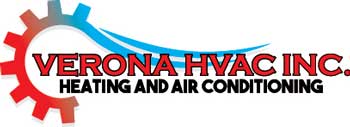
Did you perform a double take when you took a look at your last energy bill? While high energy bills can be the result of extreme weather events, repeatedly high bills can quickly signify an inefficient HVAC system or your home is using too much energy through other means, such as drafty windows or poor insulation.
One of the simplest ways to determine whether your home is consuming too much energy is by calling a home service expert to complete a home energy audit, also known as a home energy assessment. Keep reading to find out more about home energy audits, including what they are and their key elements.
What Is a Home Energy Audit?
An energy audit is a comprehensive inspection of how much energy your home uses up and whether – and where – your home might be losing or wasting energy. An inspector will review older energy bills during an energy audit to figure out where energy is being used and how much.
The ultimate goal of an energy audit is to help homeowners save money on their energy bills by recommending energy-efficient updates, which might include replacing your current HVAC system, adding new insulation, sealing up leaks, or replacing loose windows.
During the energy assessment, the auditor carries out an inspection of the outside and inside of your home. The auditor will perform a blower door test on doorways, windows and fireplaces to determine if there are air leaks in your home. They’ll also evaluate your home’s HVAC system, which also includes the ductwork, the water heater, and the insulation in your attic. Comprehensive assessments may also include checking your current lighting system.
Benefits of a Home Energy Audit
It can be hard for the typical homeowner to know for certain how efficient their home is compared to other similar homes in their neighborhood. However, local energy companies often provide information about where your home stands in comparison to similar homes and whether it’s more efficient, about average, or inefficient in contrast with your neighbors’ homes. This is a great starting point to determine if you need an energy audit scheduled.
A few of the benefits of a home energy audit include:
Understanding How Efficient Your Home Is
It’s good to learn more about how efficient your home is and where you’re using up the most energy. For example, if your ducts are leaking, it could lead to a large increase in your energy bills and increased wear and tear on your HVAC system since it has to run longer to completely heat or cool your home.
Making Energy-Efficient Updates
An energy audit will outline where you need to make energy-efficient upgrades to cut back on energy and reduce utility bills. This can include replacing worn weatherstripping or getting a new energy-efficient furnace.
Enhancing Health and Safety
Permitting air to leak into your home via doors and windows, or due to a lack of insulation can cause extra moisture to form, which could negatively influence your home’s humidity levels or lead to mold. This can lead to health conditions, particularly for people who have asthma or allergies.
Raising Your Home’s Retail Value
Energy-efficient homes are desired by homebuyers. You can sell your home much faster or for more money by showing prospective buyers that it’s energy efficient.
How to Do an Energy Audit of Your Home
Although performing an energy audit on your own might not be as detailed as choosing a professional, it’ll offer you a generalized sense of how energy efficient your home is. If you don’t find any problems during the DIY test, then you probably don’t need to call in a professional. Follow this step-by-step checklist:
- Inspect your HVAC system. Damaged ducts can lose up to 20% of conditioned air, leading to steeper energy bills and increased wear and tear on HVAC equipment. If you notice leaks, use duct tape to plug them. If your HVAC equipment is old and wearing down, upgrading to a new system can save you a considerable amount on your energy bills. In some cases, it might be better to contact a reputable HVAC company to inspect your system.
- Look for air leaks. Air leaks on average can raise your energy bills by 10 to 20%. Inside, look for air leaks in areas where there is a draft, like along the edge of flooring and near baseboards and electrical outlets. Outside, you can look for air leaks along the home’s foundation, siding and mortar. Plug, caulk or seal any air leaks to save money.
- Inspect insulation. If your home is older, it could mean your insulation is too. If you can see the joists, you likely need more insulation.
- Check the ventilation. Check that all of your kitchen and bathroom exhaust fans are spinning properly, and look for evidence of rot or moisture.
Contact Verona HVAC for a Professional Energy Audit
If you are interested in professional help finding out how energy efficient your heating and cooling equipment is, contact the HVAC pros at Verona HVAC today. We’ve proudly served the residents of Santa Clarita with quality home services for many years. Contact us today to schedule an appointment.
